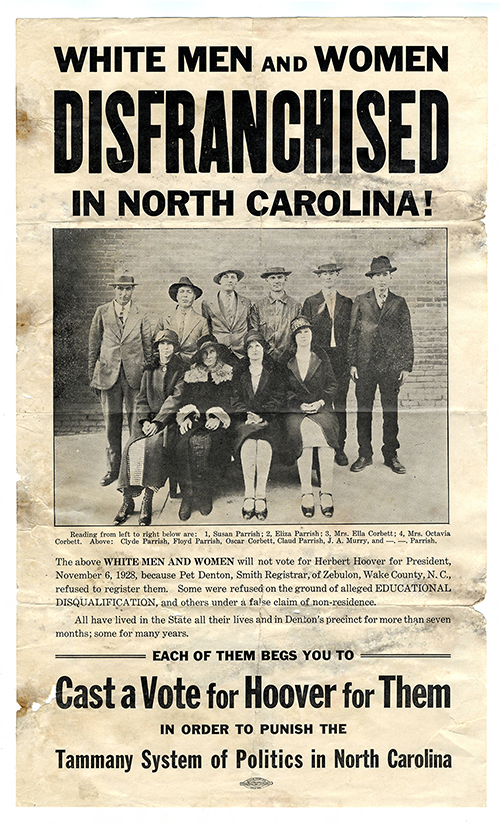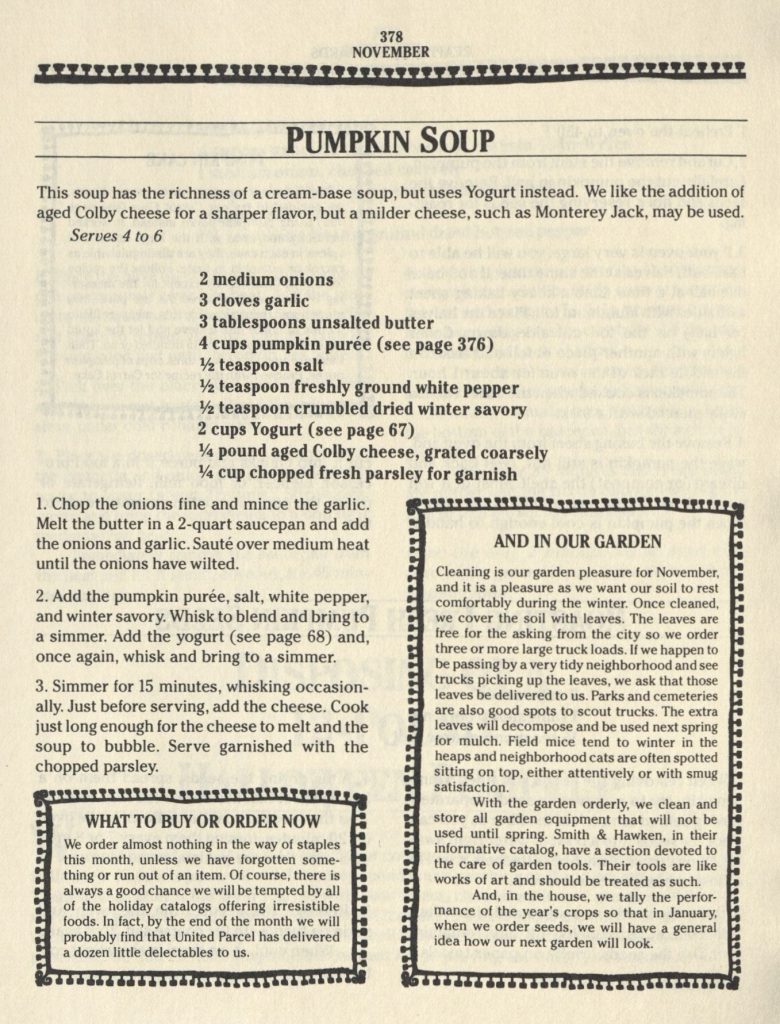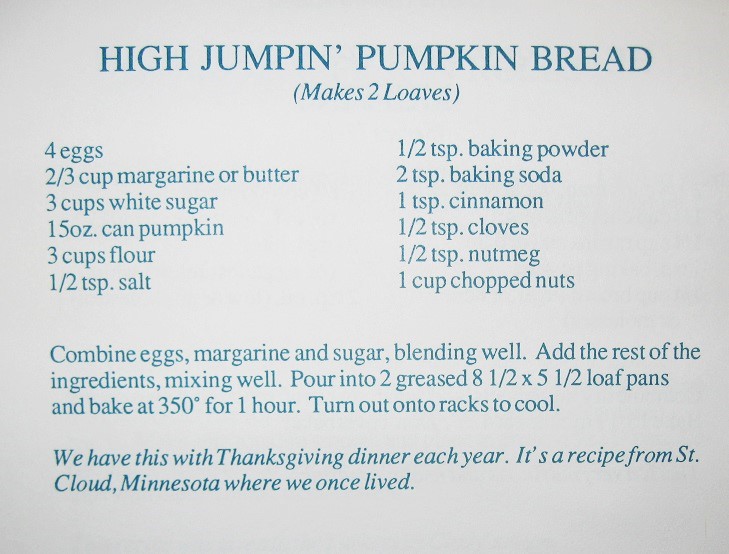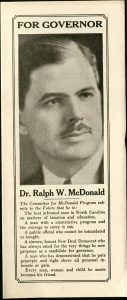With all the media attention on North Carolina’s role in the 2016 election, it seems fitting to feature an artifact that represents the Ghost of Campaigns Past. Our October Artifact of the Month is a poster from Herbert Hoover’s presidential campaign of 1928.

The text of the poster reads:
WHITE MEN AND WOMEN
DISFRANCHISED
IN NORTH CAROLINA!
The above WHITE MEN AND WOMEN will not vote for Herbert Hoover for President, November 6, 1928, because Pet Denton, Smith Registrar, of Zebulon, Wake County, N.C., refused to register them. Some were refused on the ground of EDUCATIONAL DISQUALIFICATION, and others under a false claim of non-residence.
All have lived in the State all of their lives and in Denton’s precinct for more than seven months; some for many years.
============= EACH OF THEM BEGS YOU TO =============
Cast a Vote for Hoover for Them
IN ORDER TO PUNISH THE
Tammany System of Politics in North Carolina
The poster decries the consequences of discriminatory voting restrictions that had been established in North Carolina at the turn of the twentieth century. Remarkably, the poster doesn’t condemn the laws for being racist; instead it objects to their discrimination against white people.
In 1900 the state legislature had passed laws limiting the nearly universal male suffrage established by the North Carolina constitution of 1868. The laws made North Carolina one of many Southern states to enact poll taxes and literacy tests as a requirement for voting.
Poll taxes and literacy tests were used to deny voting rights to African Americans and American Indians. And while poll taxes were prohibited by the North Carolina legislature in 1920, literacy test laws remained on the books, excluding many potential voters from participating in the 1928 election.
Such laws, of course, can be only so targeted in their discrimination. The creator of this poster laments the laws’ unintended effects — namely that they had prevented white, lifelong North Carolinians from voting.
The poster ties such practices to those of New York’s Tammany Hall political organization, widely condemned for its corruption. Democratic candidate Al Smith lost the election to Hoover partly on the basis of his association with Tammany Hall — although his anti-Prohibition stance and his Catholic faith also played significant roles in his defeat.
Literacy tests were widely used in North Carolina until the US Congress passed the Voting Rights Act of 1965 and the federal government began to supervise state voting practices.
Visit the new Lew Powell digital collection!
This poster is part of the Lew Powell Memorabilia Collection, which we wrote about in September. You can see the poster and other items from the Lew Powell collection in the Lew Powell digital collection.







